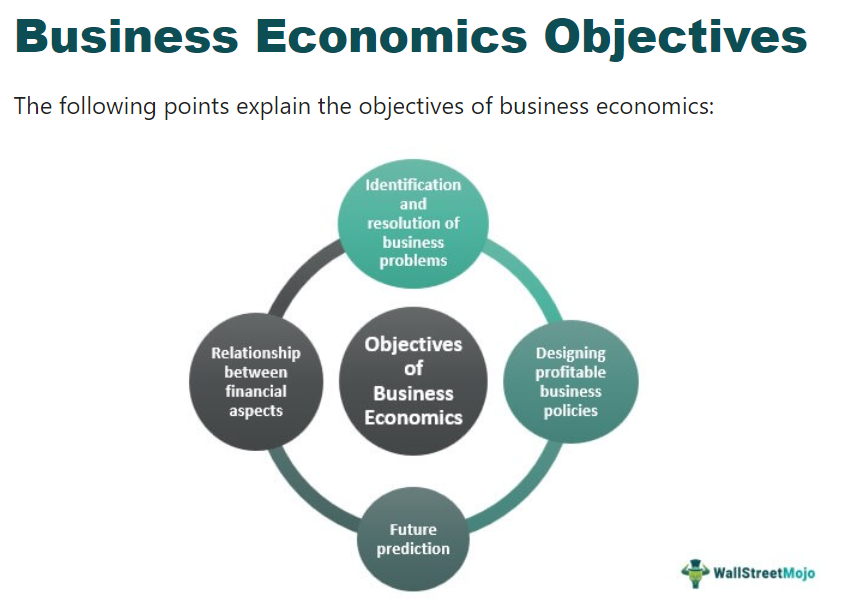How Government Regulations Shape Business and Economics on a Worldwide Scale
How Government Regulations Shape Business and Economics on a Worldwide Scale
Blog Article
Recognizing Financial Principles for Better Business Decision-Making
In the complicated landscape of contemporary service, a complete understanding of economic concepts can considerably improve decision-making procedures. The application of these economic concepts often exposes unanticipated challenges and chances that can redefine tactical methods.
The Essentials of Economic Concept
Economic concept works as the foundation for recognizing how individuals and organizations make options in the visibility of shortage. At its core, economic concept examines the allotment of minimal resources to satisfy endless wants. This basic concept of shortage necessitates trade-offs, compelling decision-makers to assess the advantages and expenses related to different options.
Both primary branches of economic theory are macroeconomics and microeconomics. Microeconomics concentrates on individual agents, such as customers and companies, analyzing their habits and interactions in particular markets. It emphasizes ideas like supply and demand, rate flexibility, and market balance, which are crucial for recognizing how rates are determined and just how sources are distributed.
On the other hand, macroeconomics examines the economic situation all at once, resolving more comprehensive problems such as inflation, unemployment, and financial growth. It offers insights right into systemic phenomena that impact all financial representatives, leading policymakers in crafting efficient financial techniques.
Inevitably, a strong grounding in economic theory is essential for effective business decision-making. By recognizing the concepts of deficiency, trade-offs, and market dynamics, organizations can much better make and browse intricate settings educated choices that boost their competitive advantage.
Secret Economic Indicators
Key financial indicators act as essential tools for evaluating the health and wellness and direction of an economic situation, supplying beneficial insights for business decision-making. These indicators are measurable steps that show the economic efficiency and can be classified right into leading, delaying, and coincident signs.
Leading signs, such as customer self-confidence indexes and stock exchange trends, predict future economic task, enabling organizations to anticipate modifications on the market. Delaying signs, like unemployment rates and corporate revenues, supply insights right into the economy's previous performance, helping organizations to assess lasting patterns. Coincident indicators, such as GDP development and retail sales, change simultaneously with the economy, providing a real-time snapshot of financial conditions.
Understanding these indications enables businesses to make enlightened choices concerning investments, source allocation, and tactical planning. By carefully keeping an eye on these essential economic indicators, companies can navigate uncertainties and position themselves efficiently in the ever-changing economic landscape, ultimately enhancing their decision-making processes and long-lasting success.

Market Frameworks and Characteristics
Comprehending market frameworks and dynamics is critical for companies aiming to prosper in affordable settings. Market frameworks, broadly classified right into perfect competition, monopolistic competitors, oligopoly, and monopoly, considerably influence pricing strategies, item distinction, and affordable actions. Each structure offers special difficulties and opportunities that can determine a company's strategic direction.
Oligopolies, defined by a couple of leading gamers, lead to interdependent decision-making; companies should carefully take into consideration competitors' actions to their activities. Syndicates exist when a solitary company manages the market, resulting in optimal prices power but typically attracting governing scrutiny.
Comprehending these characteristics allows businesses to expect market fads, adjust techniques, and optimize resource allocation. Additionally, acknowledging just how outside elements like modern technology and law impact these frameworks can enhance critical preparation. By mastering market structures and characteristics, firms can make educated choices, inevitably enhancing their competitive position and driving sustainable growth.
Customer Actions Insights
Consumer behavior plays a pivotal role fit organization approaches and results. Recognizing just how customers make buying choices, their preferences, and the factors affecting their actions can substantially enhance a business's capability to meet market needs. Key understandings right into consumer behavior can be originated special info from analyzing demographics, psychographics, and behavior patterns.
Demographic factors such as age, revenue, sex, and education degree offer a foundational understanding of target audience. Psychographics delve much deeper, checking out customers' worths, attitudes, and way of livings, which can affect brand name loyalty and item perception. Behavioral insights, such as buying frequency and action to promos, are important for customizing marketing initiatives.
Furthermore, external variables like economic conditions, social trends, and technical innovations additionally influence consumer choices. Throughout economic declines, customers might focus on important items over luxury things, changing need patterns.
Using Economics to Method
Insights obtained from customer actions are crucial in creating effective organization techniques. By leveraging economic principles, organizations can better comprehend market dynamics, maximize source allowance, and boost affordable positioning. Analyzing need elasticity, as an example, enables companies to readjust rates techniques to take full advantage of income while staying appealing to consumers.
Additionally, understanding market division enables services to tailor their offerings, guaranteeing they satisfy the specific needs and preferences of varied customer groups. Business and Economics. This targeted technique boosts customer fulfillment and promotes brand loyalty

Integrating video game concept right into calculated preparation additionally offers insights right into competitive actions, allowing firms to expect rival actions and develop counter-strategies properly.

Conclusion
In final thought, a comprehensive understanding of financial principles dramatically boosts business decision-making. By taking a look at market structures, assessing consumer habits, and examining vital financial signs, companies can establish effective methods that line up with market demands.
In the facility landscape of modern-day service, a detailed understanding of economic concepts can significantly improve decision-making processes.Leading signs, such as customer self-confidence indexes and supply market patterns, predict future economic activity, allowing companies to prepare for changes in the market. By closely monitoring these vital financial indicators, organizations can navigate unpredictabilities and position themselves successfully in the ever-changing economic landscape, inevitably improving their decision-making procedures and long-term success.
By leveraging financial concepts, companies can better understand market characteristics, enhance resource appropriation, and boost competitive positioning.In final More hints thought, a thorough understanding of economic principles dramatically boosts service decision-making.
Report this page